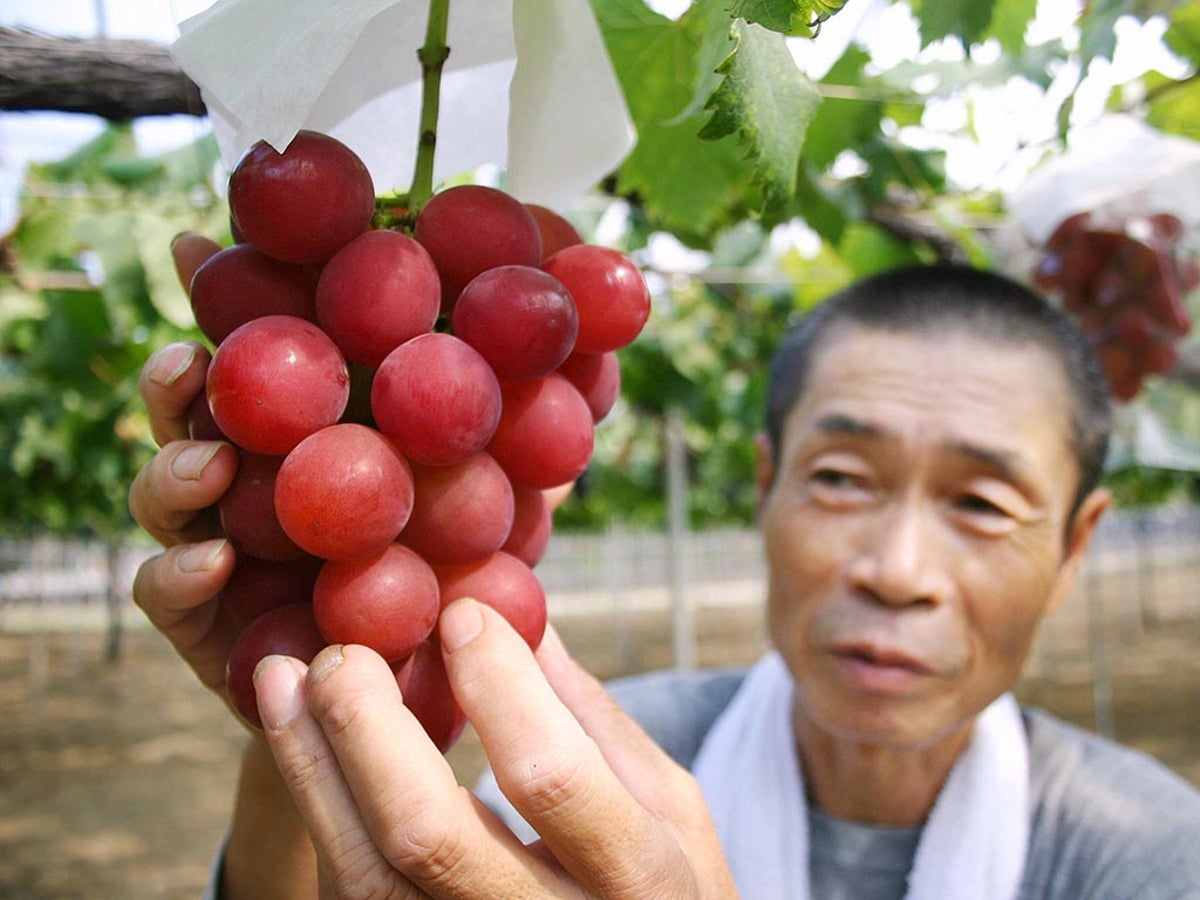Have you ever wondered why fruit is so expensive in Japan? 🍎🍌 Well, you’ve come to the right place to find out! In this article, we’ll explore the fascinating reasons behind the high prices of fruits in Japan. 🇯🇵
Picture this: you’re strolling through a Japanese supermarket, and your eyes widen at the sight of beautifully displayed fruits. But as you approach, you realize that these luscious fruits come with a hefty price tag. So, why is that the case? 🤔
It turns out that several factors contribute to the high cost of fruit in Japan, including limited agricultural land, strict quality standards, and transportation costs. Let’s dive deeper into each of these reasons and uncover the secrets behind Japan’s expensive fruit market. 🌍💰
Have you ever wondered why fruit is so pricey in Japan? It’s a combination of factors that contribute to the high prices. One reason is that Japan has limited land available for agriculture, so there is less space to grow fruit. Additionally, strict quality standards result in a smaller yield of top-grade fruits. High demand and the cost of transportation also play a role. These factors, along with cultural preferences and a focus on quality, contribute to the higher fruit prices in Japan.

Why is Fruit So Expensive in Japan: Unveiling the Costly Delicacy
Japan is a country known for its exquisite cuisine, meticulous attention to detail, and unique cultural practices. One aspect that often surprises visitors is the exorbitant cost of fruit in the country. From the humble apple to the luxurious melon, the prices can be shocking, but there are reasons behind this phenomenon. In this article, we will delve into the factors that contribute to the high cost of fruit in Japan and explore why it has become a luxury item for many.
The Exquisite Art of Fruit
In Japan, fruit is not simply a piece of food; it is seen as a work of art. The Japanese have a deep appreciation for aesthetics, and this extends to their food culture. Perfectly shaped, flawlessly colored, and amazingly succulent, Japanese fruit is meticulously cultivated to achieve a level of perfection that is unparalleled. Farmers devote significant time and effort to each fruit, carefully selecting the best cultivars, ensuring optimal growing conditions, and employing special techniques like hand pollination and individual fruit wrapping. This painstaking process results in fruits that are visually stunning and offer an unrivaled taste experience. Consequently, the meticulous cultivation adds to the cost of production, making the fruits more expensive compared to mass-produced counterparts in other countries.
The culture of gift-giving in Japan also contributes to the high price of fruit. It is customary to present gifts on various occasions, including weddings, business meetings, and hospital visits. Fruit, especially premium and seasonal varieties, is highly regarded as an appropriate and thoughtful gift. The act of giving fruit is a symbol of respect, gratitude, and good wishes. To uphold the cultural significance, gift fruit must be of the highest quality and presented in elaborate, beautifully wrapped packaging. This emphasis on presentation adds another layer of cost to the fruit, escalating its price further.
Despite the high cost, the demand for premium fruit remains strong in Japanese society. Exclusivity, rarity, and the desire for the best quality drive consumers to seek out these expensive delicacies. More affluent individuals are willing to pay a premium for premium fruit, elevating its status as a luxury item. Additionally, the perception that expensive fruit reflects the wealth and social standing of the consumer fuels the desire to own and indulge in such extravagant produce. The demand for exclusive fruit also extends beyond the domestic market, with wealthy tourists and fruit connoisseurs from around the world seeking out these unique Japanese offerings.
The Factors Behind the High Cost
Multiple factors contribute to the high cost of fruit in Japan. Geographic limitations and the country’s reliance on imported produce are major contributors. Japan has a relatively small land area suitable for agriculture, leading to limited farmland availability and higher land prices. This scarcity of space limits the ability to produce large quantities of fruit domestically. As a result, Japan relies heavily on fruit imports, which are subject to tariffs, shipping costs, and fluctuating exchange rates. The additional expenses incurred in bringing foreign fruit to the Japanese market significantly impact the overall cost.
Furthermore, Japan’s strict agricultural regulations and high safety standards also increase the cost of fruit production. The country places a strong emphasis on food safety, and farmers must adhere to rigorous guidelines and testing procedures. These regulations ensure that the fruit is free from harmful chemicals and contaminants but also increase the cost of production. Additionally, the limited use of pesticides and herbicides in Japanese agriculture, while benefiting consumers’ health, can lead to lower crop yields, further driving up the cost of fruit.
In conclusion, the high cost of fruit in Japan can be attributed to several factors. The meticulous cultivation methods, cultural emphasis on presentation and gift-giving, limited domestic production, reliance on imports, strict regulations, and high safety standards all contribute to the overall price. Despite the expense, the allure of Japanese fruit remains strong, with consumers appreciating the quality, taste, and symbolism associated with these luxurious delicacies. So, the next time you savor a perfectly ripe Japanese apple or indulge in a sweet, juicy melon, remember the artistry, care, and effort that went into producing such a treasured treat.
Key Takeaways: Why is Fruit So Expensive in Japan?
- Fruit in Japan is expensive due to a variety of factors including limited agricultural land, high production costs, and strict quality standards.
- Japan imports a significant amount of its fruit due to its climate and limited arable land, which drives up prices.
- The country also places a high importance on aesthetics and quality, leading to meticulous farming practices and higher costs.
- Transportation costs and the shorter shelf life of fresh fruit also contribute to higher prices in Japan.
- The demand for premium and exotic fruits, as well as the cultural significance of gift-giving, further drives up prices.
Frequently Asked Questions
Here are some common questions regarding the high cost of fruit in Japan.
Why are fruits in Japan so expensive?
Fruits in Japan can be expensive due to several factors. One reason is the limited supply of certain fruits, like melons and berries, which are highly sought after. Japan’s mountainous terrain and limited agricultural land make it challenging to produce large quantities of fruits.
Additionally, fruits in Japan are often considered luxury items and are often given as gifts or used in special occasions. This high demand for premium fruits leads to higher prices, as consumers are willing to pay a premium for quality and presentation.
Are there any other factors contributing to high fruit prices in Japan?
Another factor that contributes to high fruit prices in Japan is the strict quality standards imposed on fruits. Japanese consumers have high expectations for fruit quality and appearance, which requires farmers to invest more time, effort, and resources into cultivating fruits that meet these standards.
In addition, high labor costs in Japan also contribute to the higher prices of fruits. Farming in Japan often requires manual labor, which is more expensive compared to countries where labor costs are lower. These costs get passed on to the consumer, making fruits more expensive.
Are there any efforts to reduce fruit prices in Japan?
Efforts are being made in Japan to reduce fruit prices. One approach is the use of technology and innovation to increase fruit production. For example, vertical farming and hydroponics are being explored to maximize land utilization and increase crop yield.
There are also initiatives to promote fruit imports from other countries, which can offer a wider variety of fruits at more affordable prices. By diversifying the fruit market, it is hoped that competition will help drive down prices and make fruits more accessible to the general population.
What are the benefits of consuming expensive fruits in Japan?
While fruits in Japan may be costly, there are still benefits to consuming them. Japanese fruits are often known for their exceptional taste, texture, and quality. They are carefully cultivated, ensuring that they reach peak ripeness and have a rich flavor.
In addition, Japanese fruits are often grown using sustainable and environmentally friendly methods, which can have a positive impact on the ecosystem. By supporting the higher prices of fruits in Japan, consumers are contributing to the continued preservation of these agricultural practices and the local economy.
How do the high fruit prices in Japan affect the average consumer?
The high fruit prices in Japan can have an impact on the average consumer’s purchasing decisions. Some consumers may choose to limit their fruit consumption due to the high prices, while others may opt for more affordable imported fruits or frozen alternatives.
However, for special occasions or when looking for premium-quality fruits, consumers are often willing to pay the higher prices. Japanese culture places a strong emphasis on gift-giving and presentation, so the demand for luxury fruits remains high despite the cost.

Inside the Japanese Luxury Fruit Market | So Expensive Food | Business Insider
Summary
Fruit is expensive in Japan because of factors like limited arable land, high production costs, and strict quality standards. The country relies heavily on imports, which drives up prices. Additionally, fruit in Japan is considered a luxury item and is often gifted or used for special occasions, further increasing the demand and price.
However, there are initiatives to lower fruit prices in Japan, such as increasing domestic production, importing from cheaper countries, and promoting the use of technology in farming. These efforts aim to make fruit more accessible and affordable for both locals and tourists. While fruit may still be pricey, these measures are gradually helping to make it more affordable for everyone.

